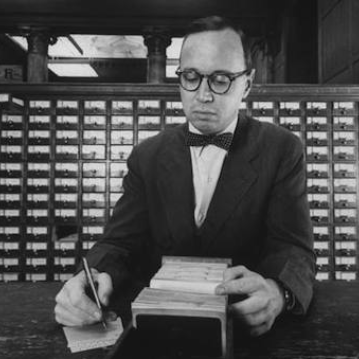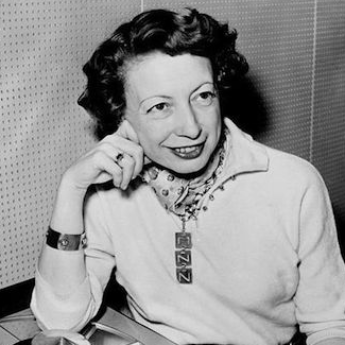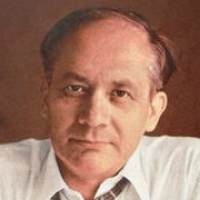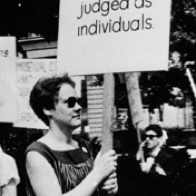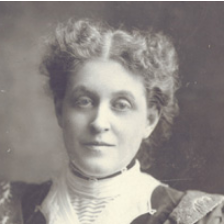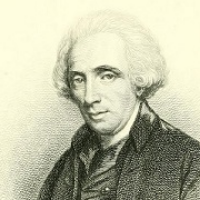Living at NYPL Archives & Manuscripts
Timothy Leary
Timothy Francis Leary, Jr. (1920-1996), a psychologist and writer, became known as an advocate for the use of psychedelic drugs and a counterculture icon. Timothy Leary was born in Springfield, Massachusetts to Timothy and Abigail (neé Ferris). He attended Springfield Classical High School and graduated in 1938. His college education and military career overlapped.
View Collection
The New Yorker
The New Yorker is a weekly magazine founded in New York City in 1925 by Harold W. Ross, Jane Grant, Alexander Woollcott, and Raoul Fleischman.
View Collection
Jack Kerouac
Jack Kerouac (Jean-Louis Lebris de Kerouac) was born in Lowell, Massachusetts on March 12, 1922. His father, Leo Alcide Kerouac was a job printer. His mother, Gabrielle Ange Kerouac (nee Levesque) was a shoe-factory worker. Both parents were French-Canadian, and Jack Kerouac grew up in a predominantly Roman Catholic, French-Canadian community in Lowell. He was recognized as an outstanding athlete, and won a football scholarship to Columbia University.
View Collection
The 1939 New York World's Fair
The New York World's Fair of 1939 and 1940, was held in Flushing Meadows in the Borough of Queens. The non-profit Fair corporation was formed in 1935 under the guidance of business and civic leaders, and financed through federal, state, municipal and private funds. The Fair commemorated the 150th anniversary of Washington's inauguration in New York City and took "Building the World of Tomorrow" as its central theme. Participants included close to 60 nations, 33 states and U.S.
View Collection
United States Sanitary Commission
The United States Sanitary Commission (USSC), 1861-1879, was a civilian organization authorized by the United States government to provide medical and sanitary assistance to the Union volunteer forces during the United States Civil War (1861-1865). As the USSC broadened the scope of its work during the war, Regular troops, sailors and others also benefited from its services. The USSC wrapped up its war relief operations in the fall of 1865. At that time it established an Historical Bureau to collect, arrange, and preserve its records, which would also serve as a documentary resource for planned publications on historical and scientific topics. Some special relief operations, such as the running of employment bureaus and homes for disabled soldiers and sailors, continued until early 1866.
View Collection
Arthur M. Schlesinger, Jr.
Arthur M. Schlesinger, Jr. (1917-2007) was an American historian as renowned for his political activities as a liberal Democrat as for his critically acclaimed scholarly work. He won the Pulitzer Prize and National Book Award twice each, while playing a significant role in shaping the intellectual basis of postwar Democratic liberalism. He was born Arthur Bancroft Schlesinger on October 15, 1917 to Arthur Meier Schlesinger and Elizabeth Bancroft Schlesinger, both well-known historians.
View Collection
Robert Moses
Robert Moses (1888-1981) was a public official whose vision played a major role in shaping the physical development of the New York Metropolitan area. Moses was born on December 18, 1888 and raised in New Haven, Connecticut and on East 46th Street in Manhattan. He graduated from Yale University in 1909, and went on to receive a Ph. D. in political science from Columbia University in 1914.
View Collection
Diana Vreeland
Diana Vreeland, renowned editor-in-chief of Vogue, and fashion editor of Harper's Bazaar, was a dominant force in the fashion industry of the mid-twentieth century. She was born Diana Dalziel in Paris in 1903, the daughter of British stockbroker Frederick Young Dalziel and Emily Key Hoffman, an American. In 1924, she married Thomas Reed Vreeland (1899-1906), a banker and international financier. The Vreeland marriage produced two sons, Thomas Reed, Jr. and Frederick Dalziel.
View Collection
The 1964 New York World's Fair
The New York World's Fair of 1964-1965 was held at Flushing Meadows in the Borough of Queens on a site leased from the City of New York. It was conceived in 1958 by a group of New Yorkers who formed a non-profit corporation of some 300 members to provide the start-up capital. Eighty nations participated in the Fair which had the theme 'Man's Achievements in an Expanding Universe'. Robert Moses, who was associated with the earlier World's Fair in New York in 1939-1940, served as the president of the 1964-1965 Fair.
View Collection
Ann Ronell
Ann Ronell, songwriter, lyricist and musical director for films, was born Ann Rosenblatt in Omaha Nebraska on 25 December 1905, the child of a coal dealer, Morris Rosenblatt and Mollie Rosenblatt . After graduating from Central High School in 1923, she enrolled at Wheaton College in Norton, Massachusetts. She spent two years there and then transferred to Radcliffe College where her music teachers included Edward Burlingame Hill, Edward Ballantine, Archibald T. Davison and Walter Piston . Her first compositions date to this period, but her work for the college newspaper was to be the primary launching pad for her career as a commercial songwriter.
View Collection
Arturo Toscanini
Arturo Toscanini was born in Parma, Italy, on March 25, 1867, and died in Riverdale, New York, on January 16, 1957. Many regard him as one of the world's greatest conductors. In addition, Toscanini's anti-Fascist stance during World War II distinguished him as a symbol of freedom and humanity. His extraordinarily long career began in 1886, when Italian orchestral conductors were still relatively few in number, and extended into the 1950s, by which time his radio and television broadcasts had transformed him into a cultural icon.
View Collection
Benny Goodman
Benny Goodman was an American jazz clarinettist, composer, and band leader. As his life is well documented, only a brief summary is provided here. Benjamin David Goodman was born in Chicago on May 30, 1909. He began playing professionally at age 12, and by 1926 he joined Ben Pollack's orchestra. In 1929 he moved to New York and free lanced with various bands such as those of Red Nichols, Ben Selvin, Ted Lewis, Johnny Green, Paul Whiteman, and played in Broadway shows such as Gershwin's Strike Up The Band and Girl Crazy.
View Collection
Marco Rizo
Marco Rizo was born in Santiago, Cuba, in 1920. His father Sebastian, the principal flutist with the Santiago Symphony, provided Rizo with his early music education. In addition to playing with his father’s jazzband, Rizo studied classical music, and became an important classical pianist by the age of 16. In 1938 he moved to Havana where he joined the city’s Philharmonic as the official pianist. He then immigrated to the United States in 1940, and studied at Juilliard until 1942, when he joined the war effort as a performer in the 2d Army Military Band.
View Collection
Henry Cowell
Henry Cowell (March 11, 1897 - Dec. 10, 1965) was an American composer, writer, pianist, educator, lecturer and publisher. He was born to a poor family in Menlo Park, California, near San Francisco; Menlo Park remained his home until 1936. Cowell was mainly schooled at home by his mother and began his music studies at age five on the violin; he switched to piano within a few years and began composing around the time he was 10. Lewis Terman, a psychologist at Stanford University, began studying Cowell as an example of a child genius and used him as a case study subject for the development of the Stanford-Binet IQ test.
View Collection
Farrar, Straus & Giroux
The publishing company Farrar, Straus & Giroux, Inc. was founded in 1945 as Farrar, Straus & Company by John Farrar and Roger W. Straus, Jr. After numerous changes in management and corresponding changes in name, the company became known as Farrar, Straus & Giroux, Inc. (FSG) in 1964 when Robert Giroux became editor-in-chief.
View Collection
John Quinn
John Quinn (1870-1924) was a corporation lawyer in New York City who amassed an important private collection of paintings, drawings and sculpture as well as books and manuscripts of contemporary authors. In addition to promoting modern and avant-garde art in all forms, he particularly encouraged the work of members of the Irish Literary Revival, the artists of the Paris School, and English and American writers of his time. In 1923 he sold his manuscript and library holdings to subsidize his art collection.
View Collection
Raphael Lemkin
Raphael Lemkin was an attorney and professor of law who coined the term "genocide" and was responsible for the creation of the United Nations genocide convention. He was born in Eastern Poland on June 24, 1901. He studied philology, mastered nine languages, served as Warsaw's public prosecutor, and practiced and taught law until 1939, when the Nazi invasion forced him to flee to Sweden. In 1941, Lemkin emigrated to the United States on the invitation of the Duke University School of Law and was later associated with the Yale Law School. During the 1940s and 1950s he devoted most of his energy to the cursade for the international adoption of the United Nations Convention on the Prevention and Punishment of the Crime of Genocide, which was adopted by the U.
View Collection
Claire Clairmont
Clara Mary Jane Clairmont, commonly known as "Claire," step-sister of Mary Wollstonecraft Shelley and member of the Shelley circle. An aspiring novelist and writer of significant journals and letters, she spent many years as a governess, and was the mother of Lord Byron's child Allegra.
View Collection
Mary Wollstonecraft
Mary Wollstonecraft, the English author and advocate of women's rights. Her Vindication of the Rights of Woman is the most influential work of early feminist philosophy; she also wrote novels, reviews, and books for children. This guide lists and describes the manuscript materials held by the Pforzheimer Collection that were created by Mary Wollstonecraft, including including original holograph writings and letters.
View Collection
Mary Wollstonecraft Shelley
Mary Wollstonecraft Shelley, the English novelist. Best known as the author of Frankenstein, she also wrote short-stories, poetry, biographies, journal articles, reviews, and edited the works of her husband, Percy Bysshe Shelley. This guide lists and describes the manuscript materials held by the Pforzheimer Collection that were created by Mary Shelley, including original holograph writings and letters, amanuensis work in her hand, and her transcripts of work by others.
View Collection
Barbara Gittings
Barbara Gittings and Kay Tobin Lahusen were gay civil rights activists and partners for nearly forty-six years. Barbara Gittings (1932-2007) began her involvement with the homophile movement in 1958, when she established the East Coast chapter of the Daughters of Bilitis (DOB), the first lesbian organization in the United States, which had been founded in San Francisco in 1955. From 1963 to 1966, Gittings edited The Ladder, the DOB's national magazine. She also marched in the annual Independence Day pickets in the 1960s, which were the first demonstrations for gay rights. From 1971 to 1986, Gittings acted as the coordinator of the American Library Association's Gay Task Force, creating gay bibliographies and topical reading lists.
View Collection
Ralph Waldo Emerson
The celebrated essayist, thinker, and poet Ralph Waldo Emerson (1803-1882) taught school reluctantly after college and then became minister, but ultimately left the church and found his vocation as a lecturer and essayist. He was a one of the founders of Transcendentalism, a philosophy that bestowed its hope and expectations on the individual soul. His poetry inspired innumerable others, from Walt Whitman to Robert Frost. (In the Berg Collection of English and American Literature.)
View Collection
Lady Blessington
Marguerite Gardiner, countess of Blessington, Irish-born writer and literary hostess.
View Collection
Thomas Love Peacock
Thomas Love Peacock (1785-1866), English satirical novelist and poet.
View Collection
Evert A. Duyckinck
Evert Augustus Duyckinck (1816-1878) and his brother George Long Duyckinck (1823-1863) were editors of The Literary World between 1848 and 1853, and editors and publishers of the Cyclopedia of American Literature.
View Collection
Paddy Chayefsky
Paddy Chayefsky, playwright and screenwriter, was born Sidney Chayefsky on January 29, 1923, in the Bronx, New York to Harry and Gussie (Stuchevsky) Chayefsky. A veteran of the New York City public school system, he attended Dewitt Clinton High School, and then the City College of New York. After graduating with a degree in accounting he joined the United States Army, where he took on the nickname Paddy. He served in the 104th Infantry Division in the European Theatre and was wounded, reportedly by a land mine, near Aachen, Germany. While recovering from his injuries in the Army Hospital near Cirencester, England, he penned the book and lyrics to a musical called No T.
View Collection
Katharine Hepburn
Star of stage and screen, and international icon, actress Katharine Houghton Hepburn was born on May 12, 1907 in Hartford, Connecticut to Dr. Thomas N. Hepburn, a distinguished urologist and surgeon specializing in the treatment of venereal disease, and Katharine (Kit) Martha Houghton, an advocate of women’s suffrage and birth control. Hepburn’s parents devoted themselves to working for social causes in which they believed, as well as to raising their family. Hepburn was the second of six children.
View Collection
New York Shakespeare Festival Productions
Joseph Papp founded the New York Shakespeare Festival in 1954 in New York City. It was initially chartered as the Shakespeare Workshop, an actors' workshop presenting Shakespeare and his Elizabethan contemporaries free of charge in the basement of the Emmanuel Presbyterian Church and in the Heckscher Theater. The original aim was to cultivate and encourage interest in Shakespeare and classic drama, to present an annual Shakespeare festival, and to build an Elizabethan-style stage to present Shakespeare's works. During the fifties, Papp fought to obtain financial support from the City of New York in order to establish a subsidized, free Shakespearean theater. Eventually, Papp won a court battle with New York City Parks Commissioner Robert Moses to keep his Shakespeare productions free to the public.
View Collection
Arthur Hays Sulzberger
Arthur Hays Sulzberger was the publisher of The New York Times from 1935 until 1961 and chairman of the board of The New York Times Company from 1961 until 1968.
View Collection
Gay Men's Health Crisis
The Gay Men's Health Crisis (GMHC), America's oldest AIDS organization, formed in 1982, serves to educate the public about HIV/AIDS, provide care services for People with AIDS (PWAs), and advocate at all levels of government for fair AIDS policies.
View Collection
Carrie Chapman Catt
Carrie Chapman Catt (1859-1947) was an American suffragist, peace activist, and lecturer. She was president of the National American Woman Suffrage Association and founder of the League of Women Voters and the International Alliance of Women.
View Collection
Charles Dickens
Charles Dickens was a British novelist, short story writer, essayist and journalist.
View Collection
David Randolph
Conductor, radio host, and music educator David Randolph (1914-2010) was an active member of the New York classical music community. He served as musical director of the Randolph Singers, the Masterwork Chorus, and The St. Cecilia Chorus and was a longtime WNYC radio host of “Music for the Connoisseur,” later called “The David Randolph Concerts.” The collection contains letters, diaries, writings, concert programs, photographs, and annotated scores, documenting Randolph’s career.
View Collection
William Makepeace Thackeray
William Makepeace Thackeray was a British novelist, short story writer, artist and illustrator.
View Collection
Nathaniel Hawthorne
Nathaniel Hawthorne was an American novelist and short story writer.
View Collection
Walt Whitman
Walt Whitman was born May 31, 1819 on Long Island, one of seven children, and died March 26, 1892 in Camden, New Jersey. His family moved to Brooklyn when he was four years old. When he was thirteen he began work at the liberal Long Island Patriot, the beginning of his long involvement with journalism that included founding and running his own paper. Later in life, he worked as a teacher, a printer, a government clerk, and as a volunteer nurse to sick and wounded Civil War soldiers.
View Collection
- 1842 Published a commissioned temperance novel in the November 23 supplement to the New World, entitled Franklin Evans; or the Inebriate .
Henry David Thoreau
H. D. Thoreau (1817-1862) was born in Concord, Massachusetts where he lived most of his life. There he came to know and be associated with the New England Trancendentalists, a group that included Ralph Waldo Emerson, Bronson Alcott, Margaret Fuller, Jones Very, Elizabeth Peabody and Orestes Brownson.
View Collection
Mark Twain
Samuel Langhorne Clemens was an American novelist, short story writer, essayist, journalist, and literary and social critic. Born on November 30, 1835 he wrote fiction and non-fiction under the pseudonyms Mark Twain, Sieur Louis de Conte, Quentin Curtius Snodgrass, and Thomas Jefferson Snodgrass.
View Collection
Virginia Woolf
Virginia Woolf was a British novelist, short-story writer, literary critic and essayist.
View Collection
Tom Wolfe
Tom Wolfe is an American author and journalist known for such works as The Electric Kool-Aid Acid Test, The Right Stuff, and The Bonfire of the Vanities. He is a pioneer of the New Journalism and has been an outspoken advocate for the revival of social realism in American fiction. The Tom Wolfe papers, dated 1930 to 2013, comprehensively document Wolfe's career, providing insight into his writing process and the development of his signature style; the professional relationships he maintained with editors, writers, and cultural critics; his social life in New York City; and readers' responses to his published work. The collection includes draft manuscripts, outlines, research files, correspondence, lectures, photographs, and drawings.
View Collection
George Avakian
George Mesrop Avakian (1919-2017) was an American music producer, artist manager, writer, and educator best known for his work with artists such as Louis Armstrong, Miles Davis, Duke Ellington, John Cage, Alan Hovhaness, Keith Jarrett, Sonny Rollins, his wife Anahid Ajemian, and many other musicians and composers. Avakian was born in Armavir, Armenia, the oldest of three children of Mesrop and Manoushak Avakian. His brother was the film director, editor, and photographer Aram Avakian (1926-1987). The Bolshevik revolution forced his family to immigrate to the United States in 1923, and they settled in New York City, where Mesrop Avakian established the U.S.
View Collection
Jim Carroll
Jim Carroll was an American poet, diarist, and rock musician associated with the downtown arts scene in New York City. He was born in New York City on August 1, 1949 to Thomas J. Carroll and Agnes Carroll (née Coyle). Growing up, he primarily attended Catholic schools, graduating from Trinity School in 1968. While in school, Carroll was a star basketball player; he also began using heroin.
View Collection
Joseph Mitchell
Joseph Mitchell (1908-1996) was a journalist and New Yorker writer. Mitchell was born on a Fairmont, North Carolina farm in 1908 to Averette Nance (A.N.) and Elizabeth Mitchell. Mitchell attended the University of North Carolina from 1925 to 1929.
View Collection
Noah Webster
Noah Webster (1758-1843) was an American lexicographer, educator, lawyer, and editor. His first dictionary, A Compendious Dictionary of the English Language, was published in 1806. He is best known for the more comprehensive American Dictionary of the English Language, finished in 1825 and published in 1828. Webster must be counted among the founding fathers of the United States. Historians continually note the wide sales of Webster's 'blue-back spellers,' and the monumental achievement of his American Dictionary published in 1828.
View Collection
Philip John Schuyler
Philip John Schuyler (1733-1804) was a prominent member of the landed aristocracy of upstate New York. Born in Albany, Schuyler inherited extensive lands in the Saratoga Patent, through the Mohawk Valley, in Dutchess County, and along the Hudson River. He served in the British Army during the French and Indian War, rising to the rank of Major. His thirty year career in public office began in 1768 when he was elected to New York's colonial assembly. There he sided with those favoring increased independence from Great Britain.
View Collection
William Smith
William Smith Jr. (1728-1793), an American Loyalist of New York and Quebec, was a prominent jurist, statesman, journalist, and historian. Smith was a member of the royal Council of the Province of New York from 1767 to 1783, and was the Province’s last royal Chief Justice, from 1780 until his departure for England in December, 1783. He served as Chief Justice of the Province of Quebec (later Lower Canada) from 1786 until his death, in addition to holding other offices. A prolific writer as well as a formidable lawyer, Smith contributed to the Whig periodicals the Independent Reflector (1752-1753) and the Occasional Reverberator (1753), which he co-founded with William Livingston and John Morin Scott.
View Collection
James Baldwin
The James Baldwin Papers document Baldwin’s career as an African American writer, intellectual, and activist in the United States and abroad. They include writings, correspondence by Baldwin, business records, printed records, photographs and audio materials.
View Collection
Samuel J. Tilden
Samuel J. Tilden (1814-1886) served as Governor of New York, 1875-1876, and was the Democratic nominee for the Presidency in 1876. Tilden began his career as a corporate lawyer; he served as Corporate Counsel for the City of New York, as a member of the New York State Assembly, and as Chairman of the Democratic National Convention. Monies from his estate contributed to the founding of The New York Public Library. Born in New Lebanon, New York, in 1814, Tilden was the 5th son of Elam Tilden, a shopkeeper, pharmacist, and postmaster prominent in Democratic politics.
View Collection





